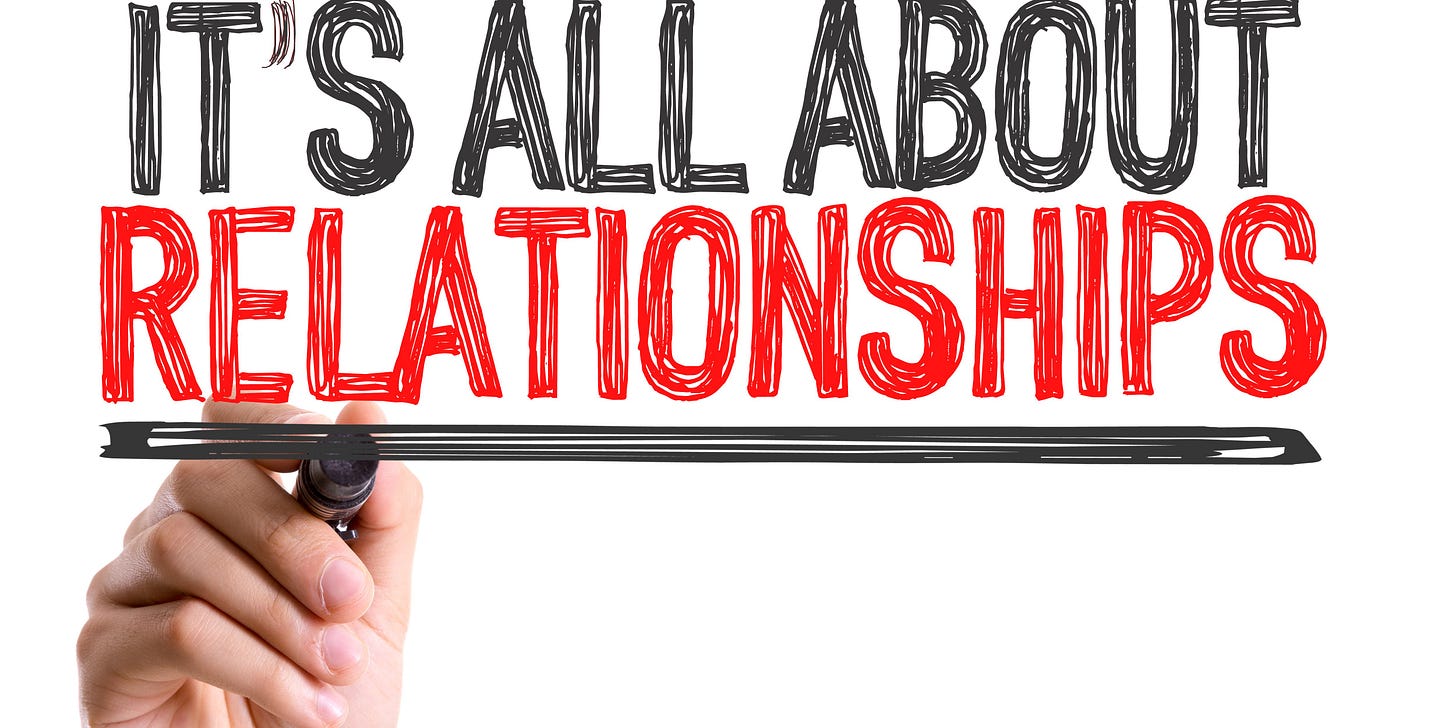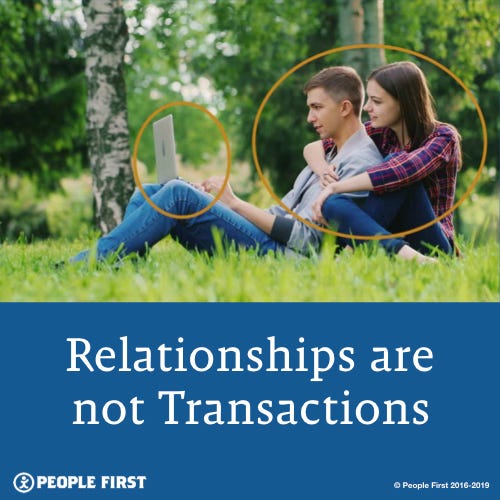Corporate Speak
Don't Trust It. Don't Get Confused.
I was going to avoid the ‘language discussion’ until later in the year, but that changed this past week after I received an email from a long time friend, colleague and as it turns out … reader.
‘Language’, a People First Pillar, has been ‘adopted’, ‘adapted’ but not ‘improved’ by business to such an extent that people use terms that have become part of our day-to-day vocabulary, without barely a thought.
But if we did think, imagine what we might think about something like ‘The Sharing Economy’.

Quick caveat. Of course there is a sharing Economy, but it isn’t Uber, Lyft, AirBNB, WeWork, Mechanical Turk, TaskRabbit ... but that’s all for another time.
A Scenario
In a windowless 'war room', somewhere in a corporate headquarters are assembled the 'best of the best' as the lead 'tiger team' decides that the ‘best form of defense is attack’.
The leader:
"We might have lost the battle - but we have not lost the war, what have you got.”
They turn to their trusted lieutenant.
"The competition is working to divide and conquer our market. Right now, they are just lying in wait. My plan is a preemptive attack on our base, using guerrilla tactics to to cut them off at the pass. We will need boots on the ground but the plan of attack is clear. We have identified our target and through the will of force we will establish a beachhead and over the next few weeks will regain our position and have taken the hill."
OK - I am pretty sure that nobody would ever say those words exactly, but every single one of those phrases that are in bold is constantly used in corporations. They look at their world through the lens of war, survival, dog-eat-dog. And the language is not just aimed at their competition, they also refer to their customers in the same way. How else can you explain why phrases like; ‘share of wallet’, ‘attacking and targeting a market’ (that’s you and me folks) and breaking down those ‘adoption barriers’ are in such wide usage in these corporate towers?
In fact, as far back as 2011, the Harvard Business Review wrote : Customer Loyalty Isn’t Enough. Grow Your Share of Wallet. See what I mean?

But it’s those same organizations that when they broadcast to us, say things like
“Your Passion Is Our Satisfaction.”
“Pleasing People Is Our Motto.”
and
“A Customer Is Always Right.”
… and that’s just three random taglines that I found in this list of ‘best customer service slogans’ Which in turn leads to such headlines and ‘thinking’ as …

Seriously?

Do you really want a ‘relationship’ with Comcast, UPS and Wells Fargo? More importantly. Do you believe them?
Question
Which scenario do you think more accurately represents the real corporation. What they really want to do?
Me? I think what is said behind closed doors more often reflects the truth. What is broadcast in public is what they think we want to hear. It’s politics, not business, but isn’t that what happened to Mitt Romney?
That’s not to say that you can’t definitely believe that ‘a customer is always right’, but right now, it really is when it suits them. Or more likely - when they are found out!
So about that email ….
It was this that caused my change in direction;
So if it's bad to call your creative work ‘content’, how is it ok to call the creators ‘assets?
… this from that long time friend John Parker. I get it. In last weeks newsletter I riffed on why we need to abandon the word ‘content’, but in another part of the edition included a graphic that read …
‘Our people are our greatest assets’, why are they liabilities on the balance sheet.
And it is that that I suspect caused him to put ‘pen to paper’ - or at least - ‘finger to keyboard’. Don’t worry, we are fully on the same page. He went on …
People, regarded properly, are energy rather than matter. They are creative forces that can be discovered, fostered, unleashed. Their best qualities are not inherent, but contextual. People's abilities to connect with one another, to adapt to change, to forge relationships and fight for abstract ideals like truth, honesty, integrity, loyalty and, most of all, love are what makes us unique and valuable to ourselves, to others, and to the companies that provide us with employment.
Concluding with …
I am not an asset. I am a force to be reckoned with.
We all are. I know John has always recognized this, now what does it take for everyone to do the same?
Me? I couldn’t agree more. In fact just yesterday, Biz Catalyst published the first of a four part series that I submitted over this last weekend. You’ll have to wait until Issue 4 to close the loop back to this point, but boy are we on the same page and if you read issue 1, the next three will make more sense.
The graphic in fact reads;
‘Our people are our greatest assets’
… using quote marks, to indicate someone else’s words, not mine. But yes. Not clear. My bad.
John is also a founder and co-owner of Blue Okra, an ethical company that makes baby blankets and sleepwear. They are trying to define by example what it means to be an ethical company.
Not just organic and environmentally safe, but sustainable and ecologically beneficial.
Not just slave-free and fair trade, but living wages all the way up the supply chain.
Not just charitable, but changing lives by investing in people and communities.
In John and Julies’s words …
‘It's HARD. But it's worth it.’
Reminds me a little of People First, so since we are on the same page, might I offer a slight rework of last week’s graphic, so there is no confusion …

Many Thanks For Your Attention
Please do forward this to colleagues and friends and have them subscribe. It’s a small but growing community that is resonating (or is that ‘vibrating’?) … more on that in time.
